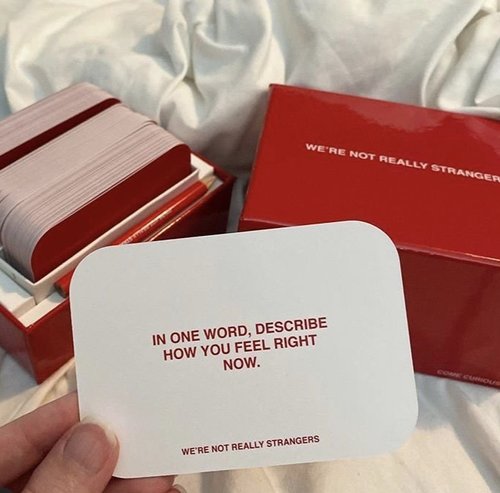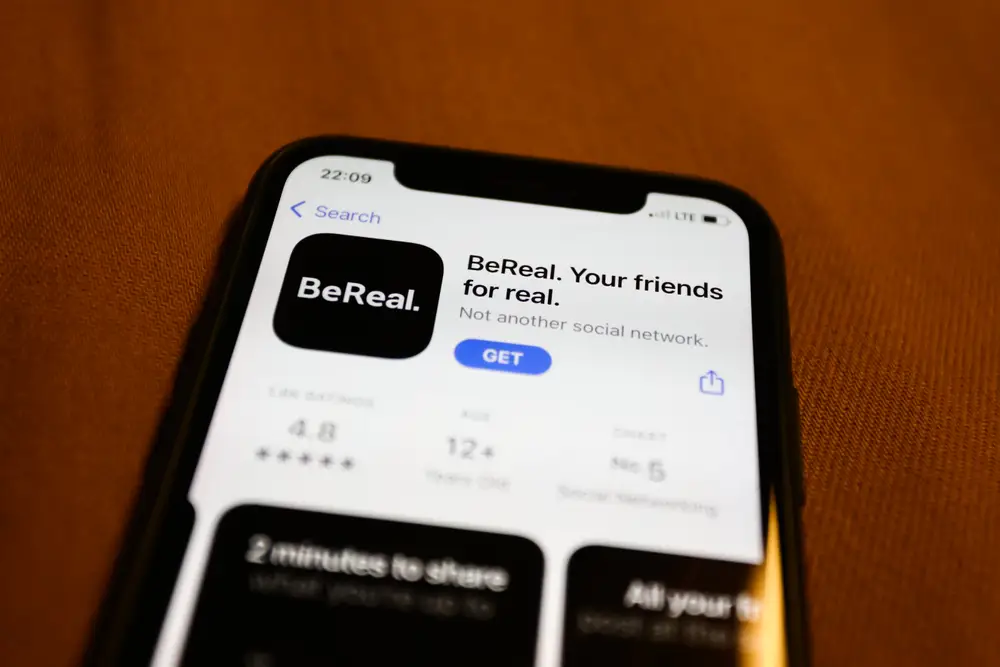SOCIAL GAMES
Top Questions from We're Not Really Strangers
In a world where genuine connection often feels like a fleeting dream, We’re Not Really Strangers (WNRS) has carved out a unique space. The game, designed to spark meaningful conversations, invites players to move beyond surface-level interactions into emotional depth. Here are 10 standout questions from WNRS, along with a deeper exploration of why they resonate so powerfully.
1. What’s the hardest thing you’ve had to learn about yourself?
This question cuts straight to the heart of self-awareness. It prompts players to reflect on their personal growth and vulnerabilities, creating an opening to share stories of struggle and resilience. This level of honesty fosters trust and allows others to connect not just with your strengths but also with your imperfections.
Why it’s effective: Discussing the lessons learned through hardship humanizes both parties, making the conversation feel deeply authentic and relatable.
2. What do you think I fear most?
While this might seem intrusive at first glance, it encourages empathy and perspective-taking. Guessing someone’s fears requires careful observation and understanding of their behavior, while also giving them a chance to clarify or correct your perceptions.
Why it’s effective: It shifts the focus from self-expression to active listening and curiosity, laying a foundation for emotional intimacy.
3. What part of your life do you want to let go of?
This question invites introspection about the baggage we carry. It’s an opportunity to share stories of past pain or regret, and to articulate aspirations for a lighter, freer future.
Why it’s effective: By talking about release and renewal, players can bond over shared struggles and hopes, cultivating a sense of solidarity.
4. What’s a memory that instantly makes you smile?
Unlike heavier questions, this one leans into joy and nostalgia. Sharing happy memories is a way to explore what makes someone feel alive, loved, or inspired.
Why it’s effective: It shifts the energy to positivity, allowing participants to see each other in a brighter light while strengthening emotional bonds through shared joy.
5. What is a compliment you wish you received more often?
This question dives into unspoken needs for validation and affirmation. It’s a chance to reveal the kind words we long to hear but rarely do.
Why it’s effective: It unveils insecurities in a way that feels safe and constructive, allowing others to step into the role of supporter.
6. When was the last time you felt lucky to be yourself?
A question that turns the spotlight onto self-love and gratitude, this prompt encourages players to reflect on moments of alignment and fulfillment.
Why it’s effective: It’s a positive, affirming way to explore self-identity, showcasing what someone values most about their life and choices.
7. What’s something you’ve never told anyone before?
This high-risk, high-reward question requires vulnerability. It creates a safe space for players to share a secret or untold story, deepening the sense of trust.
Why it’s effective: The exclusivity of the information shared can forge a special connection, making participants feel uniquely trusted and valued.
8. What does your younger self need to hear right now?
This question allows for self-compassion and reflection on personal growth. It’s an opportunity to speak kindly to the person you used to be, while revealing lessons learned along the way.
Why it’s effective: It combines nostalgia with emotional healing, creating a conversation that is both reflective and uplifting.
9. What is a dream you’ve let go of, and why?
This question uncovers layers of ambition, disappointment, and evolution. It’s a way to understand someone’s changing priorities and personal growth.
Why it’s effective: By sharing dreams that didn’t materialize, participants open up about vulnerability and adaptability, which can be incredibly bonding.
10. What do you want to be remembered for?
This ultimate reflective question taps into legacy and purpose, challenging participants to articulate what truly matters to them.
Why it’s effective: It’s a profound way to understand someone’s core values, inspiring meaningful dialogue about goals and impact.
Why These Questions Work
They Challenge Surface-Level Norms: These prompts go beyond the usual small talk, allowing people to engage in meaningful dialogue.
They Encourage Vulnerability: Sharing fears, dreams, and regrets builds trust and emotional intimacy.
They Foster Empathy: By asking about another person’s experiences and perspectives, the questions promote understanding and compassion.
They Build Self-Awareness: Reflecting on these prompts often helps participants learn more about themselves in the process.
They Create Emotional Intimacy: The layered depth of the questions allows for a gradual but genuine connection, moving past superficial barriers.
We’re Not Really Strangers excels at transforming conversations into moments of connection. These questions remind us of the power of asking, listening, and showing up fully in relationships—turning strangers into something much more.




